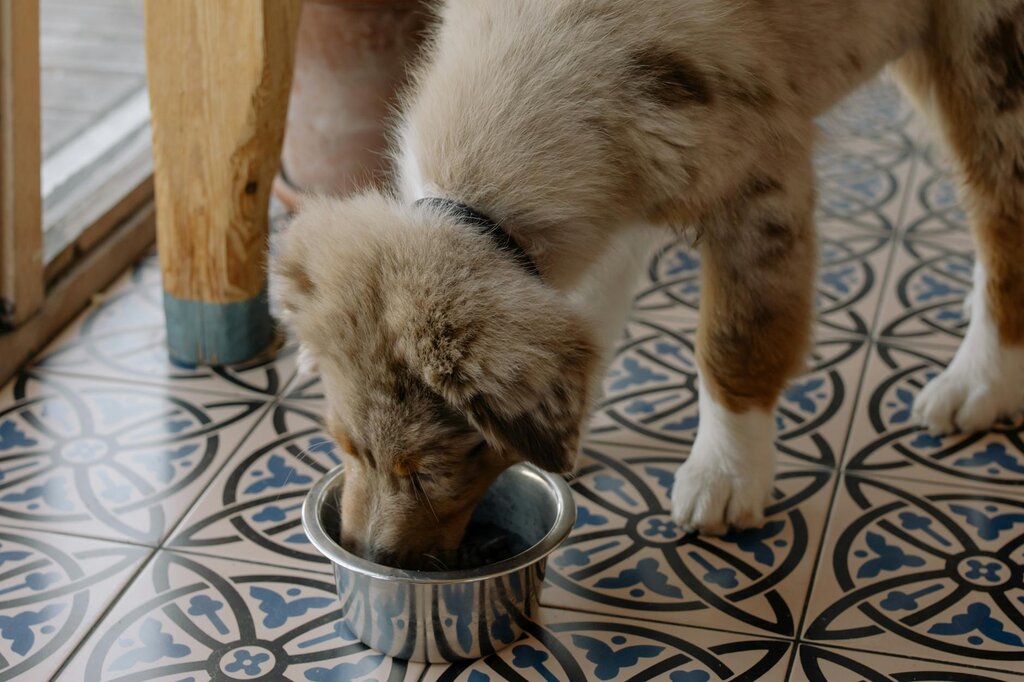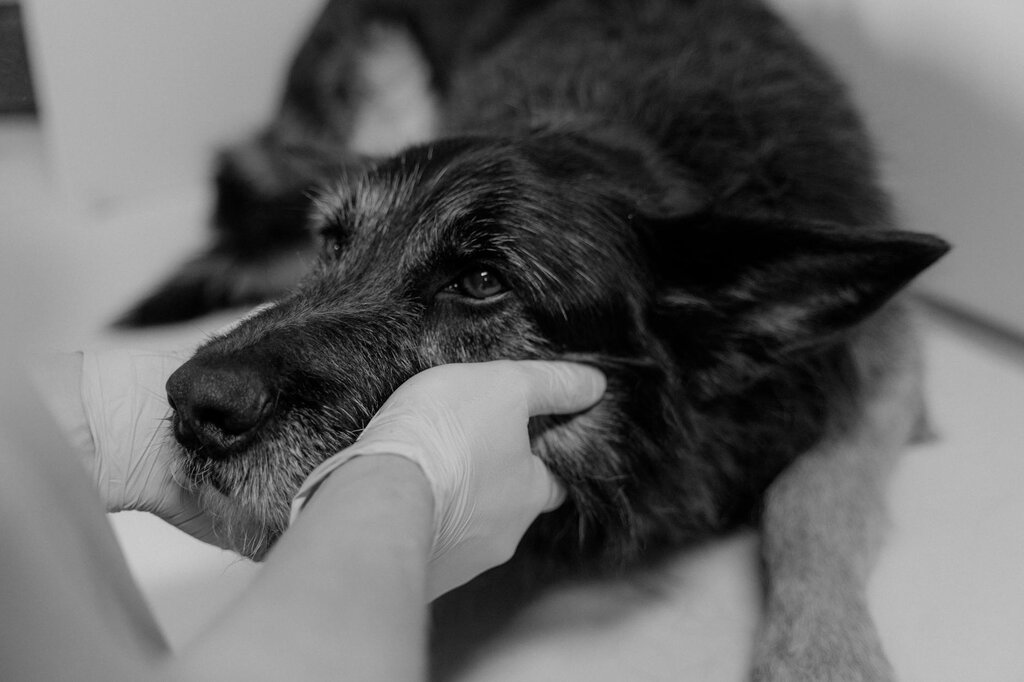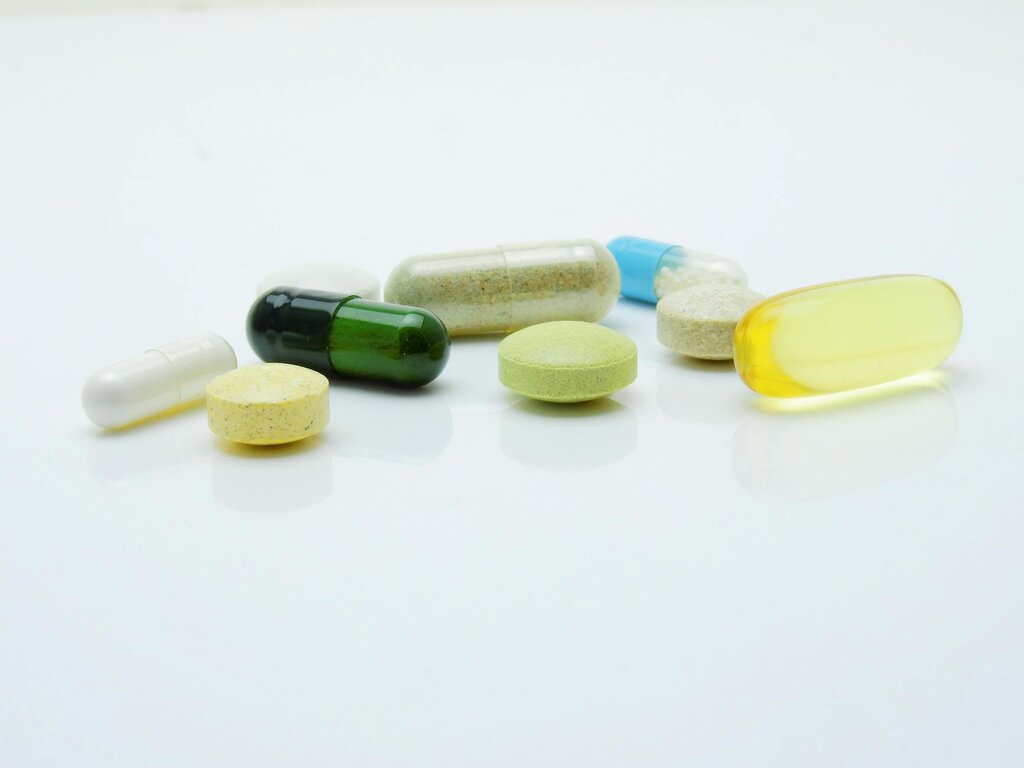Last Updated: 17/06/2025
Flatulence in Dogs
Does your dog produce room-clearing gas? Read on to see how you can help to reduce the flatulence and restore harmony to your household.
Author: Dr Carla Paszkowski BVSc (Hons)
Reading Time: 41 minutes - long read
Is your dog farting up a storm? Flatulence, or excessive gastrointestinal gas, is a common and stinky problem suffered by dogs all over the world. As funny as the odd 'fluff' may be, excessive gas may be a sign that something is wrong with your dog's guts. Thankfully, there are plenty of things you can do to help solve this stinky issue - and most of them won't break the bank!
Is it normal for dogs to fart?
The first thing to clear up is that the odd fart is completely normal for dogs - just as it is for humans! However, just like humans, the odd 'gassy' day is fine but ongoing chronic farting and any putrid smelling gas is absolutely worth investigating.
What causes flatulence in dogs?

Farting in dogs can be caused by something as harmless as a change in diet, but it also could be a sign of an underlying gastrointestinal issue. The most common causes of dog farting include:
1. Unbalanced gut microflora
The microbes living in the gut are a surprisingly vital part of the body and gastrointestinal system. The population of microbes in the gut is also known as the 'gastrointestinal microbiome' or 'gut microflora'. All animals (including dogs) have billions of 'good bacteria' in their gut microbiome. These bugs help fight infections, strengthen the immune system, digest food, and produce nutrients for absorption.
A healthy microbiome should have a varied and diverse population made up of a mix of different microbe species - this healthy mix is also known as 'biodiversity'. A microbiome that is less biodiverse, or has a 'bad' species growing in dominant quantities, can be caused by a course of antibiotics, a change in diet, a parasite infection, food poisoning, when weaning off puppy milk, or during times of stress. Disrupted microflora can lead to a range of signs including flatulence.
To promote biodiversity in your dog's gut microbiome, it can help to feed a varied diet rich in prebiotics, and consider probiotic supplements too. Read more about the science behind probiotics, and our top recommendations in our article: Probiotics for Dogs.
2. The wrong diet
Tying in closely with the section above, the wrong diet can lead to excessive gas production in dogs. This could be caused by a number of different mechanisms:
Poor quality food that is hard to digest. Cheap pet food is usually made with poor quality ingredients, which are hard to digest and the nutrients are not absorbed well. This can lead to bloating and gas.
Poor quality fibre. Cheap food is also made with heavily processed sources of poor quality fibre (sometimes referred to as 'fillers'). These can release excessive gas when the gut microbes try to break them down.
High fibre content. Diets high in fermentable fibre sources such as soy, peas, beans, chickpeas, legumes, lactulose, psyllium, or oat bran, can lead to excess gas production.
High fat content. Dogs that are fed a high fat diet, such as a puppy food, excessive leftovers, or a diet with high meat content, are known to fart more.
Raw meat and bones. Raw meat diets and bones are common causes of diarrhoea and gas in pets due to the high level of harmful bacteria present. (Remember, there's a reason us humans cook our meat before eating it!)
Spoiled food. Just as in humans, eating off food can lead to gastrointestinal upset and gassiness.
A sudden change in diet. If your dog has been eating one pet food for a long time, a sudden change can lead to gas (as well as diarrhoea). Feeding a rotation diet can help keep your dog's tummy primed and used to changes in dietary ingredients.
Milk, dairy products, or spicy food. Dogs can be very sensitive to dairy and spicy food, and may experience diarrhoea or gas after consuming them. Best to keep your butter chicken and spicy vindaloo to yourself!
Food intolerances. Food intolerance can present as chronic gas or diarrhoea, and will often wax and wane. There is a common myth that grain is a common cause of food allergies, however studies show that the most common food allergens for dogs include chicken, dairy, wheat, beef, and pork.
Read our top suggestions for dogs with a touchy tummy in my other article The Best Diets for Pets with a Sensitive Stomach.
3. A gastrointestinal illness
There are a number of gastrointenstinal problems that can lead to flatulence in dogs; the most common of which include:
- IBS (Irritable Bowel Syndrome)
- Intestinal Parasites
- Enteritis
- Exocrine pancreatic insufficiency
- Food allergy
Most of these illnesses are usually accompanied by other gastrointestinal symptoms such as diarrhoea or vomiting. Your vet will be able to rule out these diseases with testing.
4. Air Swallowing
Air swallowing, or aerophagia, can lead to farting simply due to the passage of gas through the gastrointestinal system. Aerophagia is particularly common in flat-faced ('brachycephalic') breeds such as pugs, boxers, cavalier king charles spaniels, and french bulldogs. Due to the malformed nature of their upper respiratory tract, these breeds tend to swallow a lot of air when they eat or drink.
Dogs who eat quickly (often aptly referred to as 'inhaling' their food) may also swallow air. To remedy this, you may like to try a puzzle feeder or snuffle mat to help slow down mealtime.
Feeding your dog straight after exercise can also lead to air swallowing, as your dog may pant while they are eating. Always give your dog ample time to cool down after physical activity.
Diagnostic tests for dogs with flatulence

If your dog has excessive gas for longer than a few days, your vet may suggest some of the following tests:
Faecal examination and Faecal egg float - your vet may examine your dog's faeces under a microscope to observe for any abnormal microbe overgrowths or worm eggs
Faecal culture - a more accurate lab test that determines which bacteria are dominant in your pet's faeces. This is particularly useful if your dog has not responded to antibiotics
Blood and Urine Tests - this can help determine if any underlying illnesses are present, such as endocrine diseases or pancreatic insufficiency
Abdominal ultrasound - this helps determine if there are any structural issues such as a tumour, torsion, or foreign bodies
Elimination diet - a way of diagnosing food allergies. This dietary trial involves feeding a hydrolysed (allergen-free) diet for 4-6 weeks and then introducing one ingredient every week to observe for a reaction.
Treatment of Flatulence in dogs

The usual remedy for dogs with excessive farting is a swap to a highly digestible diet that is low in fibre and fat. This type of diet helps reduce the amount of food that needs to be digested and absorbed before reaching the colon. See the section on diets below for our top recommended diets for flatulence.
Other non-medicated products that can help relieve flatulence include prebiotics (such as psyllium husk or Yucca schidigera) or probiotic supplements. See our section on supplements below for our top recommended probiotics for flatulence.
Medication for flatulence in dogs?
In severe cases, and only if the dog is not responding to a digestible diet and pre/probiotic therapy, medication may be required. Medical therapy may include flatulence relieving compounds including carminatives such as zinc acetate.
Recommended Diets to Reduce Flatulence in Dogs
No 'one size fits all' food
Due to the wide range of causes of flatulence in dogs, it's impossible to recommend one miracle diet that will work for every dog. For instance - some dogs experience gas due to a high level of fermentable fibre in the diet and will benefit from a swap to a low fibre diet, whereas some dogs may be gassy due to a course of antibiotics disrupting their microflora and will benefit from some extra prebiotic fibre.
As such, the below recommendations have been made alongside the cause of the flatulence. And ultimately, it's best to consult with your vet before choosing the best diet for your dog.
Recommended Diets
Key callouts
First 5 Ingredients (of pictured formula)
Suitability
Retail (Non-Prescription) Gastrointestinal Diet
Nourishes the good bacteria in the gut and helps them thrive, by:
- Prebiotic fibres including oats and pumpkin
- Fish oil for anti-inflammatory benefits
- Cranberries for extra Vitamin C for antioxidant effects
- Chicken
- Cracked Pearled Barley
- Brown Rice
- Brewers Rice
- Whole Grain Oats
MILD / CHRONIC conditions - particularly dogs who have previously been fed a low quality or high fat diet.
Less suitable for: ANTIBIOTIC disturbances, ACUTE / SEVERE conditions, FOOD ALLERGIES, PANCREATITIS
Prescription Microbiome-Support Diet
Clinically proven to reduce loose stools and other large bowel issues like flatulence, by:
- Unique blend of prebiotic and probiotic fibres to promote regular, healthy stools
- A high levels of Omega 3 fatty acids to fight inflammation
- Added vitamins C and E to fight cellular free radicals and support immune function
- Chicken
- Brewers Rice
- Corn Gluten Meal
- Chicken Fat
- Wheat Gluten
MILD / CHRONIC conditions - particularly dogs who have a history of ANTIBIOTIC treatment, a history of gastrointestinal disease, or those with an unknown cause of flatulence
Less suitable for: Dogs who have previously been fed a diet high in fermentable fibre, ACUTE / SEVERE conditions, FOOD ALLERGIES, PANCREATITIS.
Prescription Hydrolysed, Novel Protein Diet
Formulated to reduce the risk of adverse food reactions (of which flatulence can be a symptom) and chronic diarrhoea, by:
- Using hydrolysed protein - the gold standard for completing an elimination diet trial - which helps determine whether your pet has a true food allergy
- Also contains a novel protein (duck) and carbohydrate (tapioca) which makes the food more palatable and bioavailable than other veterinary hydrolysed diets
- Tapioca
- Dehydrated duck meat
- Hydrolysed poultry proteins
- Vegetable fibres
- Animal fats
Suspected FOOD ALLERGIES - Elimination trials to diagnose a food allergy / Maintenance diet for some dogs with food allergies
Less suitable for: Acute gastrointestinal upset, or mild transient gas.
Retail (Non-Prescription) Novel Protein Natural Diet
Designed for dogs with general sensitivities and intolerances towards poultry or grains.
- High quality of ingredients
- High meat content
- Grain and poultry free
- Uses mackerel meal as a primary protein and source of natural fish oil
- Contains prebiotics, probiotics and superfoods including broccoli, blueberries and kelp
- Mackerel Meal
- Tapioca
- Field Peas
- Chickpeas
- Canola Oil
GENERAL GAS, MILD / CHRONIC conditions - particularly dogs who have previously been fed a low quality, cheap diet, FOOD ALLERGIES to common allergens.
Less suitable for: PANCREATITIS, Dogs previously fet a high fat diet or foods high in fermentable fibre, ACUTE / SEVERE conditions
Please note: the above recommendations are general advice only. Your vet may recommend a Veterinary-Prescribed Diet for your dog if they feel that other health issues are present.
Supplements for Reducing Gas in Dogs
When it comes to supplements to reduce flatulence in dogs, probiotics and prebiotics tend to be the gold standard recommendation to help balance the microflora.
Definitions: What's the difference between a Probiotic and a Prebiotic?
Probiotics desposit live good bacteria directly into the gut. This helps establish populations of known beneficial bacteria in the gut by providing organisms directly.
Prebiotics deposit 'food' for the good bacteria - usually fibre - into the gut. This food helps the microbes thrive and grow. Prebiotics are selectively fermented fibres that the microflora feed on, including disaccharides (lactulose, tagatose), oligo- or polysaccharides [fructo-oligosaccharides (FOS), mannan oligosaccharides (MOS), or long-chain prebiotics like inulin.
Should I give my dog a probiotic?
Any dog who has chronic gas, or who has recently been treated with a course of antibiotics, may benefit from a probiotic supplement in addition to a dietary trial. Additionally, you may wish to give a probiotic for ongoing maintenance of any allergic, skin or immune conditions.
Anecdotally, probiotics are often reported to assist dogs with chronic gastro conditions such as a sensitive stomach, recurrent diarrhoea, food sensitivities, bloating and gas, as well as those with chronic allergies. It's possible that these dogs are also treated with courses of antibiotics more frequently than other dogs, which may be the reason for the noticeable improvement. But regardless of the reason for the success, many believe that probiotics are worth a try - and they certainly can't do any harm.
Recommended Probiotics for Dogs
While the occasional doggy flatulence is a normal and often humorous part of pet ownership, persistent or particularly foul-smelling gas can signal an underlying issue that warrants attention.
By understanding the common culprits, from dietary indiscretions and imbalanced gut bacteria to underlying medical conditions and even enthusiastic eating habits, pet owners can take proactive steps to improve their dog's digestive comfort.
Simple changes in diet, the introduction of pre- or probiotic supplements, and ensuring a calm eating environment can often make a significant difference.
However, it's crucial to consult with your veterinarian if the problem persists or is accompanied by other gastrointestinal symptoms, as professional guidance can help identify and address any more serious health concerns, ultimately leading to a happier, healthier, and less fragrant companion.
Further Reading
Want to read more? Check out our other articles:
The Causes of Diarrhoea in Dogs
Obesity in pets: why it's a problem and what to do about it
History
Our experts continually monitor the health and wellness space and we update our articles when new information becomes available.
Wed 25 Jan 2023
Written by Dr Carla Paszkowski BVSc (Hons)Dr Carla Paszkowski BVSc (Hons)
Veterinarian
Dr. Carla graduated from the University of Queensland in 2013 with a Bachelor of Veterinary Science and worked for a number of years in small animal clinics across South East Queensland. While Carla enjoys most facets of clinical veterinary work, she holds a special passion for feline medicine, pocket pets, and nutrition.

